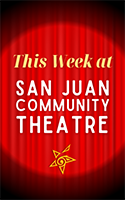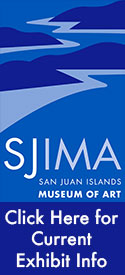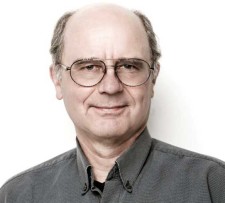Climate Change and Forests
Posted June 9, 2014 at 5:40 am by Tim Dustrude
Practicing good stewardship in forests and even our own gardens may be as critical to adapting and mitigating climate change as reducing greenhouse gases, according to Dr. Richard Hebda, curator of Botany and Earth History at the Royal British Columbia Museum in Victoria.
Hebda will discuss these concepts and more in his illustrated talk, “At the Tipping Point: A Neighbor’s Perspective on Climate Change Impacts and Adaptation,” scheduled at 7 p.m., Wednesday June 18 at the Friday Harbor Brickworks. The program is free.
“At the Tipping Point” is the first program in The Climate Action Imperative: Understanding Impacts & Making Choices, a summer/fall speakers’ series featuring eight experts on Climate Change—from oceanographers to botanists, biologists to meteorologists. The series will provide a current look at climate change and what actions are warranted by individuals as well as by our state and nation. For information about the series call 360-378-2240, ext. 2227 or 360-378-6690 or visit our web sites at www.nps.gov/sajh or www.madrona.org.
In a 2008 report, Mitigating and Adapting to Climate Through Conservation of Nature (co-written with Sara J. Wilson), Hebda wrote that conserving land with healthy natural ecosystems “is a cost-effective and important strategy to both mitigate and adapt to climate change.”
This can be as approachable as selecting native rather than non-native plants for your garden, or employing a lighter touch on the landscape, such as being more judicious in forest practices, according to the report. For example, Hebda promotes leaving fallen trees in place because they create a carbon-rich environment for growing new trees that will add more oxygen to the atmosphere to offset the rise in greenhouse gases.
Hebda has been with the Royal BC Museum since 1980, and Curator of Botany and Earth History since 1986. He has taught earth science at the University of Victoria’s School of Earth and Ocean Sciences as an adjunct professor since 1984, and focuses his botanical research on fossil plant remains and the information they provide on evolution and the history of the landscape and climate.
As curator of the museum’s climate change exhibit, Hebda used his research with plant fossils and their distribution over time and place to shed light on the condition, history and evolution of British Columbia’s landscape and climate. He also studies ethnobotany of BC First Nations, restoration of natural systems and processes, ecology and origins of Garry oak and alpine ecosystems and botany of grasses.
With his graduate students, Hebda has written more than 120 scientific papers and 250 popular articles. He has been co-author or co-editor of eight books and major reports, and serves as the Province’s expert advisor on Burns Bog and science advisor on paleontology.
He serves as the Province of BC’s science advisor in Paleontology and was awarded the Queen’s Diamond Jubilee medal in 2013 for his service in paleontology. His most recent publications are Field Guide to Edible Fruits and Berries of the Pacific Northwest (May 2014), and Saanich Ethnobotany with Nancy Turner.
Hebda holds a BS in Biology (summa cum laude) from McMaster University in Hamilton, Canada, and a Ph.D. in Botany from the University of British Columbia, Vancouver, Canada.
As with all talks in the series, Hebda’s presentation will be followed by a discussion.
Series co-sponsors are: San Juan Island National Historical Park, Madrona Institute, San Juan Islands Conservation District, The League of Women Voters of the San Juans, San Juan Island Library, San Juan Nature Institute, San Juan County Marine Resources Committee, Northwest Straits Foundation, Stewardship Network of the San Juan Islands, Washington State University Extension Service and the Agricultural Resources Committee of the San Juan Islands.
The next scheduled speaker is Dr. Jan Newton, oceanographer with the School of Oceanography at the University of Washington. Her topic will be “Ocean Acidification in Washington Waters.” The program is scheduled at 7 p.m. Wednesday, June 25 in the San Juan island Grange.
You can support the San Juan Update by doing business with our loyal advertisers, and by making a one-time contribution or a recurring donation.
Categories: Around Here











No comments yet. Be the first!
By submitting a comment you grant the San Juan Update a perpetual license to reproduce your words and name/web site in attribution. Inappropriate, irrelevant and contentious comments may not be published at an admin's discretion. Your email is used for verification purposes only, it will never be shared.